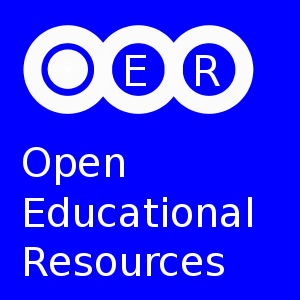 Image via WikipediaSpeakers: Rory McGreal, Wayne Macintosh
Image via WikipediaSpeakers: Rory McGreal, Wayne MacintoshLearners accessing OER can acquire knowledge formally or informally. This project reports on assessment and accreditation policies worldwide.
A major function of colleges and universities is to validate and credentialise learning by conferring qualifications and degrees. They are well equipped and experienced in the process of assessing the quality of learning for formal academic or professional credit. However, digital media are transforming the ways individuals create, share and learn both formally and informally from content and applications available on the web. There is considerable ambiguity regarding the validity of this type of learning or self-study online and the use of individualized learning paths. The problem is that learners who access OER on the Web and do acquire knowledge and skills either formally or informally, alone or in groups, cannot readily have their learning assessed and subsequently receive appropriate academic recognition for their efforts. So, there is a need for ongoing research in order to understand the different ways that institutions are addressing the needs of this growing learner population.
This paper will report on a Canadian Social Sciences and Humanities Research project. The project is original in that it will research existing and nascent international protocols and practices leading to formal academic credit for non-traditional learners. This provides a framework to evaluate the transferability and applicability of these means for assessing OER learning on the web leading to formal credentials. Existing organisational and policy barriers will be identified and categorized. The project proposes a conceptual framework to overcome these barriers for widening access to post-secondary education through digital learning in ways, which are more accessible cost-effective and responsive to the diverse, changing needs of the knowledge economy and society.
This research is significant because the core mission of any modern university is to contribute to society. Many universities incorporate the mission of community service, as publicly funded institutions, to serve the wider interests of society by sharing expertise and scholarship. An understanding of how different institutions are approaching the recognition of non-formal and informal digital learning can provide change agents with new knowledge on how to expand their community service and learning missions by creating flexible pathways to credentialise learning for non-traditional students.
Recent transformational advances in digital media, the web and mobile devices have changed the learning landscape, ensuring that this research project is different. The exponential increase in accessibility to quality educational as OER provides unprecedented opportunities for learning. Thousands of course modules are presently available online, as OER from respected institutions, along with millions of websites that can be used to support a wide variety of learning objectives. This exponential growth has opened up opportunities for learners leading to potential obligations from our institutions.
The UNESCO/COL Chair has partners on all continents. This project will contribute to the advancement of knowledge of the assessment of learning experience for non-traditional learners. The outputs of this research could potentially have wide social impact in expanding access to learning opportunities for those students currently under-served by the formal sector while enhancing the efficiency of taxpayer funded institutions by refining existing mechanisms for assessment and accreditation or non-traditional learners.
Notes:
Their work in OERs was driven by digital rights management issues, digital licenses, and the idea that a license is a privilege not ownership. These are not conditions that encourage education.
Going to open education is not a choice - we must get away from proprietary materials.
Research objectives
Map existing projects on assessment/accreditation
They are building an open education resource university - OERU
This is to accredit students who are using open ed resources. Learning is free but you pay for the accreditation. To guarantee the credibility the assessment process must be strictly equivalent to that for mainstream students.
Participating institutions, they must have credible local accreditation. They are working with agencies to ensure quality assessment standards.
Learners access courses based solely on OER. Open students supported via "Academic Volunteers" and possible student mentors. Open assessment from participating institutions. Participating inst. grant credit and degrees.
They want to accredit all forms of learning, informal, formal, non-formal, and previous learning - also will include transfer credit, challenge for credit, and portfolio learning.
Research Questions?
Is a MOOC formal learning?
How does a "badge" system fit in?
How do we assess prior learning?
Breaking the "Iron Triangle" you can increase quality and lower cost.
University of London has been doing this for years.
"The Tragedy of the Commons" - the commons still exists in Britain and Canada. They really didn't take away the commons - private property is what is robbing people.
OER Red Herrings:
Quality issues
No credible credentials
Too rigid/flexible

No comments:
Post a Comment